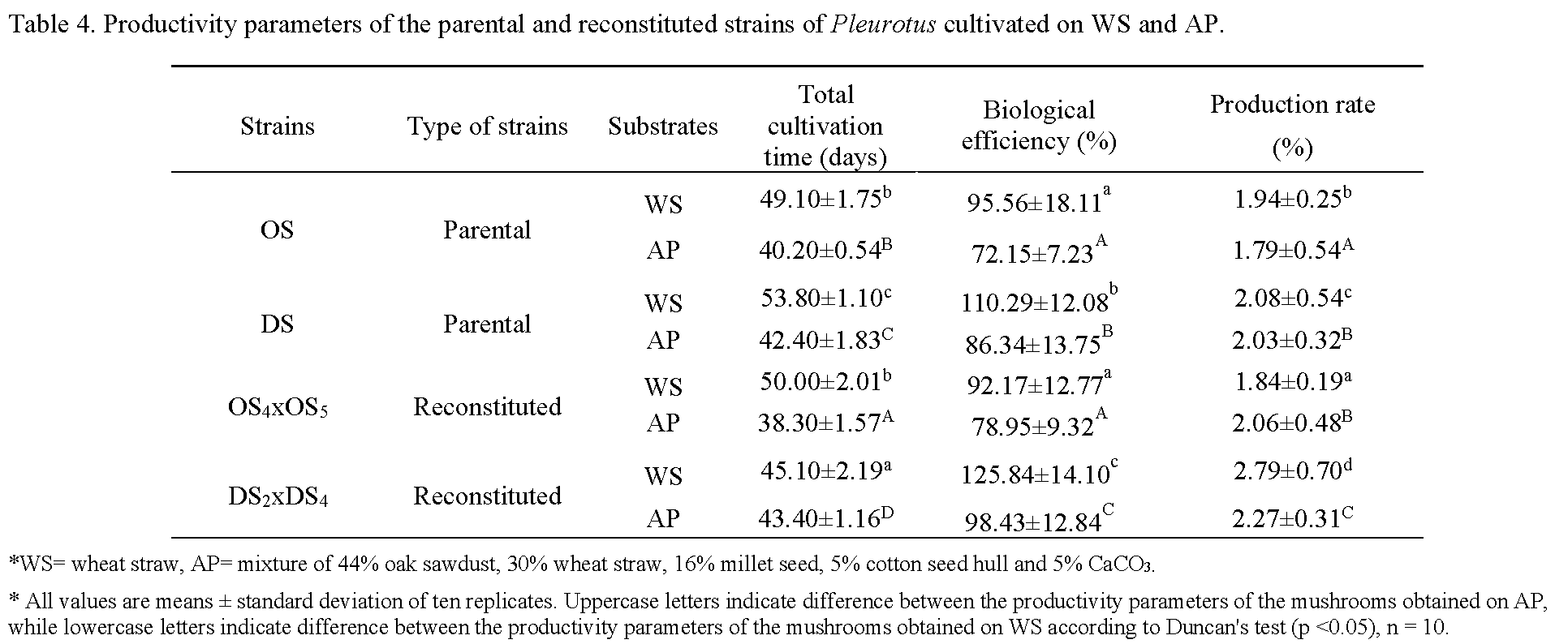 |
|
Two reconstituted strains were produced by mating neohaplonts (monokaryons) obtained by chemical dedikaryotization of two parental strains i.e. Pleurotus ostreatus (OS) and Pleurotus djamor (DS). Five monokaryons were recovered employing homogenization time periods between 60 to 90 s, and incubation at 28oC in a peptone-glucose solution (PGS) for Pleurotus spp. Mycelial kinetics on MEA and wheat grain were determined using 4 math models, the parental strains on MEA showed μmax values between 8.11 and 10.73 mm day-1 and on wheat grain presented μmax values since 0.23 to 9.18 cm3 day-1, while the reconstituted strains on MEA exhibited μmax values ranged from 8.68 and 12.93 mm day-1 and on wheat grain showed μmax values between 0.25 and 9.30 cm3 day-1. The parental and reconstituted strains were cultivated using two agricultural wastes such as wheat straw (WS) and a mixture of oak sawdust, wheat straw, millet seed, cotton seed hull and CaCO3 (AP). The productivity and chemical composition of the mushrooms, and also the chemical composition of the substrates before and after harvest were determined. Reconstituted strain Pleurotus djamor (DS2xDS4) cultivated on WS showed the highest biological efficiency (125.84 %) and production rate (2.79 %), and also this strain produced on AP presented the highest productivity parameters: biological efficiency (98.43 %) and productivity rate (2.27 %). The reconstituted strain of Pleurotus ostreatus (OS4xOS5) produced on AP presented fruit bodies with highest protein content being of 24.03%, while the reconstituted strain of Pleurotus djamor (DS2xDS4) cultivated on WS exhibited the highest protein content of 32.94%. The substrate AP used in the cultivation of the reconstituted strain (DS2xDS4) presented the highest biodegradation value of lignin (33.60%).
Keywords: Biodegradation, reconstituted strain, Pleurotus, production.
|
|
 |

